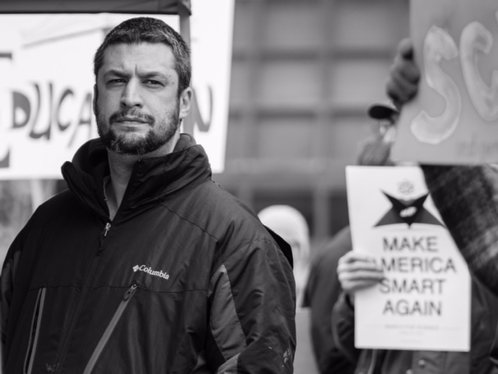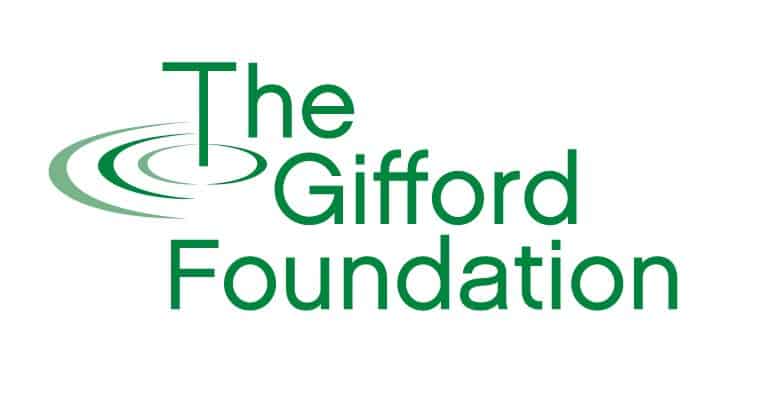Energizing the Electorate
We sat down with Councilor Joe Driscoll to discuss the challenges surrounding engagement during a pandemic, fake news, and how to fight back against a loss of faith in our civic institutions.
Published: November 14th, 2020
Joe Driscoll wants to bring regular people into the political process. One of the biggest lessons he has learned since being elected to the Syracuse Common Council is that government doesn’t function well in a vacuum. The extent to which the government can solve problems is proportional to the amount that the community participates. He feels that people underestimate their part in the process. “That’s my vision of government,” Driscoll says, “getting people to work together. Many hands making light work.”
Today we are seeing high levels of political polarization and frustration. Many people are dissatisfied with how parts of our government work, from local police departments up to the Electoral College. In many cases, this is accompanied by a lack of faith and trust in these institutions.

Helping lead the webinar series is Mindflower Studio, a consulting group that helps organizations improve their teamwork and problem solving strategies.
Driscoll argues that the beauty of politics in a smaller community like Syracuse is that you can see real progress when you get involved. “I’m so in love with small local government because you can have those interactions with people on a personal level.” If we are going to rebuild our confidence in our government, he feels that the key lies in making constituents feel less like outsiders and more like a key part of the process.
The Syracuse Common Council has made strides to increase transparency and civic engagement by inviting citizens to voice their concerns and by live streaming their council sessions. Each session is also recorded and posted online but they tend to only receive between 50 and 200 views each. “We are doing our best to be completely transparent,” Driscoll says, but he wishes more people would engage.
To be sure, generating civic engagement in local politics is easier said than done. Social media has become the platform for political discourse, but this is famously undermined by the divisive rhetoric and misinformation that platforms like Facebook and Twitter are known for. Driscoll says that social media has contributed to a loss of verifiable information everywhere. “A democracy is 100% dependent on good information and the electorate being well informed and educated on the issues.” He has noticed that when people do approach him about local political issues, they are often misinformed because of having encountered erroneous information online. “As long as social media is the public information watering hole, as long as it remains poisoned – we are going to have these problems.”
Tomorrow’s Neighborhoods Today (TNT) brings Syracuse residents together to discuss community projects, communicate with local government, and improve the quality of life for all community members.
Before the pandemic, Driscoll says he would go to two or three community meetings per week but found that they were always attended by the same small group of citizens. The tragedy of the pandemic is that bringing people together is now even more difficult. He applauds organizations like Tomorrow’s Neighborhoods Today (TNT) which work to bridge this gap between the citizenry and elected officials, but wishes people took advantage of those outlets: “[TNT] was designed to be an artery to City Government and it’s massively underutilized.” TNT hosts monthly meetings attended by representatives from the Syracuse Police Department to talk about community initiatives, problems, ideas, and more. To keep attendees safe during COVID, they have begun holding their sessions via Zoom.
Despite these challenges, Driscoll says that there have been times when the community did rally together. When that happens – the results are impressive. One of the projects that Driscoll is most proud of having been involved with is the reopening of the Westmoreland Community Center. “It was PEACE Inc, it was HOPE, it was regular neighbors, it was DA Fitzpatrick, it was SU and LeMoyne – we had all these different groups involved in the conversation that came together.” He argues that the local government needs those diverse voices to join in the conversation if a real solution is going to be found. “These were not things that I did, they were things that we did. That’s the meat and potatoes of government to me – people coming together and saying what they want to do. And it’s not so much for me as the elected official to provide the seed, the soil, the water, and everything. It’s really down to crystalizing what the community wants done.”
Driscoll says that he understands how easy it is for people to underestimate the potential impact of their actions. He says the situation reminds him of an article from the satirical newspaper The Onion, entitled: ‘How Bad For The Environment Can Throwing Away One Plastic Bottle Be?’ 30 Million People Wonder. It works the same with Common Council meetings, voting, and other forms of participation. When five hundred or a thousand different people across Syracuse stay home from a community meeting and say, “what difference will my presence make?” the ripple effect is enormous. “It always seems impossible until we collectively come together and start making those changes for ourselves on a local level.”
Stay in touch
We have a lot of stuff in the works - don't be the last to know.


